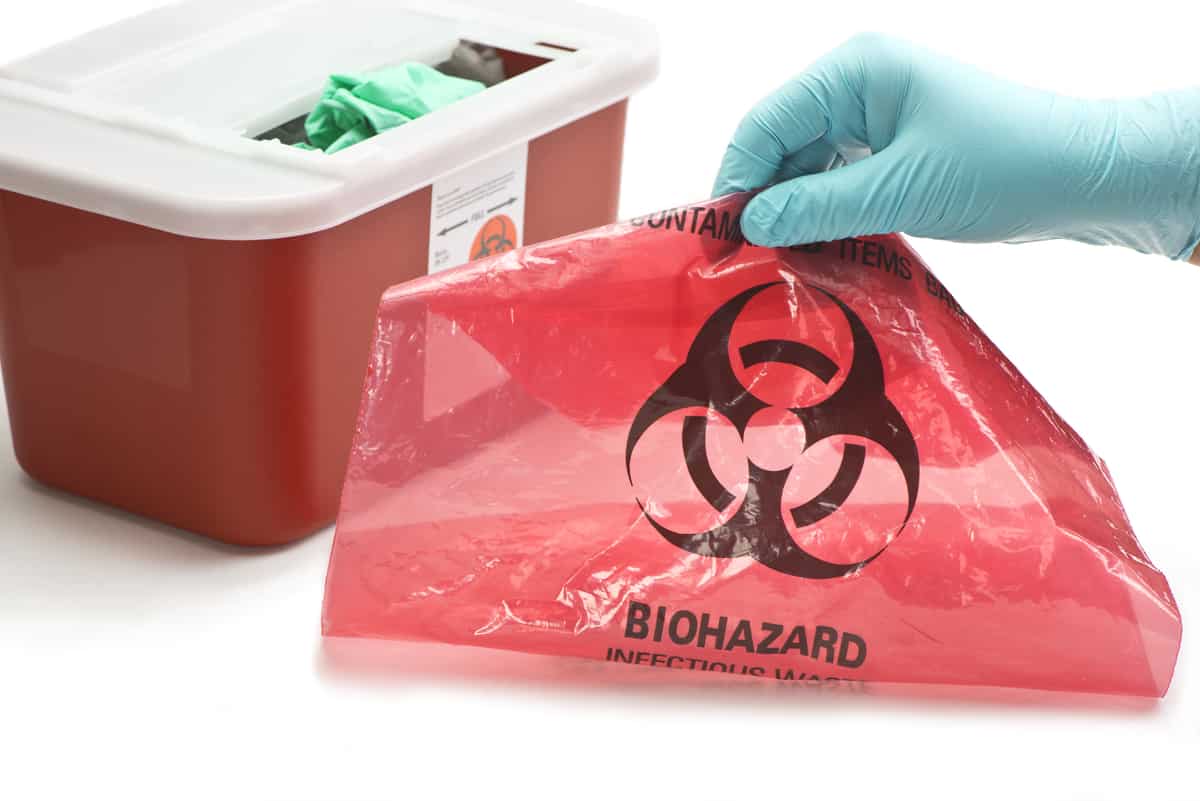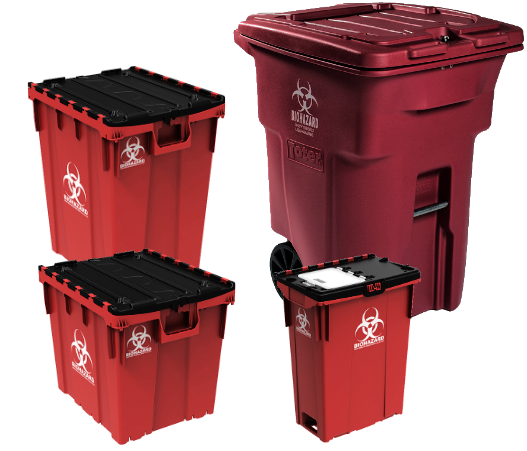Safeguarding Health: Professional Medical Waste Removal Services for a Tidy Setting
Wiki Article
Stay Ahead of Laws: Specialist Advice on Medical Waste Disposal
In a globe where the health care market is frequently developing, it is critical for clinical facilities to stay in advance of guidelines when it comes to the appropriate disposal of medical waste. From recognizing the various classifications of medical waste to applying the ideal collection and segregation methods, this conversation will provide valuable understandings and actionable tips to assist facilities remain ahead of regulations in the ever-changing landscape of clinical waste disposal.Understanding Medical Waste Categories
Understanding clinical waste categories is crucial for appropriate disposal and management in health care facilities. Clinical waste describes any waste created by health care tasks that may posture a risk to public wellness or the atmosphere. It is crucial to categorize clinical waste accurately to guarantee its safe handling, disposal, transportation, and therapy.There are numerous categories of medical waste that medical care centers need to be acquainted with. The most typical groups include infectious waste, pathological waste, sharps waste, pharmaceutical waste, and chemical waste. Each classification has particular guidelines and regulations for its correct administration and disposal.
Infectious waste consists of products polluted with blood or various other bodily fluids, such as gloves, gowns, and laboratory cultures. Pathological waste describes human cells, body organs, or body components that require special handling and disposal. Sharps waste consists of made use of needles, syringes, and various other sharp things that can cause injury and transmit infections. Pharmaceutical waste makes up ended, extra, or infected medicines that require careful handling and disposal. Finally, chemical waste includes solvents, disinfectants, and other chemical compounds made use of in medical care centers.
Staying Up-To-Date With Regulatory Modifications
Staying current with regulatory changes is important for health care facilities to guarantee compliance and proper management of medical waste disposal. medical waste removal. With policies continuously developing, it is important for healthcare centers to remain updated to prevent penalties, penalties, and prospective damage to the environment and public wellnessTo remain in advance of regulatory adjustments, health care facilities should develop a system for tracking and tracking updates. This can be done by registering for governing newsletters, attending seminars and workshops, and actively joining sector associations. In addition, centers should mark a personnel or team responsible for remaining informed and sharing info to pertinent stakeholders.
Routine interaction with regulative agencies is likewise important. Medical care facilities must develop partnerships with local, state, and government agencies to ensure they are mindful of any type of adjustments in policies that might impact their waste administration practices. This can be done with normal meetings, involvement in public remark periods, and aggressive engagement with regulative firms.
Furthermore, medical care centers should take into consideration partnering with waste administration companies that concentrate on medical garbage disposal (medical waste disposal services with WasteX). These companies are typically fluent in the newest guidelines and can provide assistance and assistance to make certain compliance
Executing Correct Collection and Partition Methods
To successfully take care of clinical waste disposal, medical care centers need to develop correct collection and partition methods based on regulative standards. Carrying out these approaches makes sure the secure handling and disposal of possibly unsafe products, shields the setting, and minimizes the risk of infections and injuries to healthcare employees and the general public.
Appropriate collection and partition techniques entail making use of marked medical waste disposal services with WasteX containers and labeling systems. Healthcare centers need to give plainly classified containers for various types of medical waste, such as sharps, infectious waste, pharmaceutical waste, and non-hazardous waste. These containers should be color-coded and plainly significant to prevent confusion and promote very easy recognition.
Furthermore, health care facilities should educate their team on the right procedures for collecting and setting apart clinical waste. This includes educating them on the various sorts of waste, the suitable containers to use, and the significance of complying with guidelines and laws. Normal training sessions and correspondence course must be performed to guarantee that team participants continue to be current on ideal methods.
Moreover, medical care centers must develop a system for regular collection and disposal of clinical waste. This might involve partnering with certified waste monitoring companies that focus on clinical garbage disposal. These firms will make sure that the accumulated waste is carried and disposed of in compliance with regulative needs.
Picking the Right Disposal Methods

Incineration is among one of the most reliable and usual approaches for throwing away particular types of medical waste, such as pathological waste and sharps. It includes the regulated burning of waste at high temperatures, lowering it to ash. Incineration can release hazardous contaminants into the air and contribute to air pollution.

Chemical therapy entails the usage of chemicals to disinfect and neutralize the waste. Microwave therapy makes use of microwave energy to heat and sanitize the waste.
Making Certain Conformity Through Documentation and Training
After thoroughly thinking about the proper disposal approaches for medical waste, healthcare facilities need to make certain compliance with regulations and reduce ecological influence by applying efficient documents and training treatments. This step is essential in maintaining a safe and sustainable environment for both healthcare employees and the public.
Health care employees that take care of medical waste ought to get ideal training on waste segregation, dealing with, and disposal treatments. By supplying thorough training, health care centers can empower their staff to make educated choices and decrease the danger of incorrect waste disposal.
Verdict
In verdict, remaining ahead of regulations in medical waste disposal is critical for health care facilities. medical waste removal near me. Comprehending the different classifications of clinical waste, staying updated with governing changes, implementing proper collection and segregation methods, selecting the proper disposal techniques, and guaranteeing conformity through paperwork and training are all necessary actions. By following these standards, medical care organizations can effectively take care of and get rid of of medical waste in a risk-free and liable mannerFrom recognizing medical waste disposal services with WasteX the different classifications of clinical waste to executing the best collection and segregation techniques, this discussion will supply important insights and workable ideas to help centers remain ahead of laws in the ever-changing landscape of medical waste disposal. - medical waste disposal services with WasteX
The description most typical categories consist of transmittable waste, pathological waste, sharps waste, pharmaceutical waste, and chemical waste. Medical care centers should provide plainly labeled containers for different kinds of medical waste, such as sharps, infectious waste, pharmaceutical waste, and non-hazardous waste. Health care centers ought to establish a comprehensive system to tape-record and track all elements of clinical waste disposal, consisting of types of waste created, quantities, and disposal methods utilized. Healthcare employees who deal with medical waste needs to get appropriate training on waste partition, taking care of, and disposal treatments.
Report this wiki page